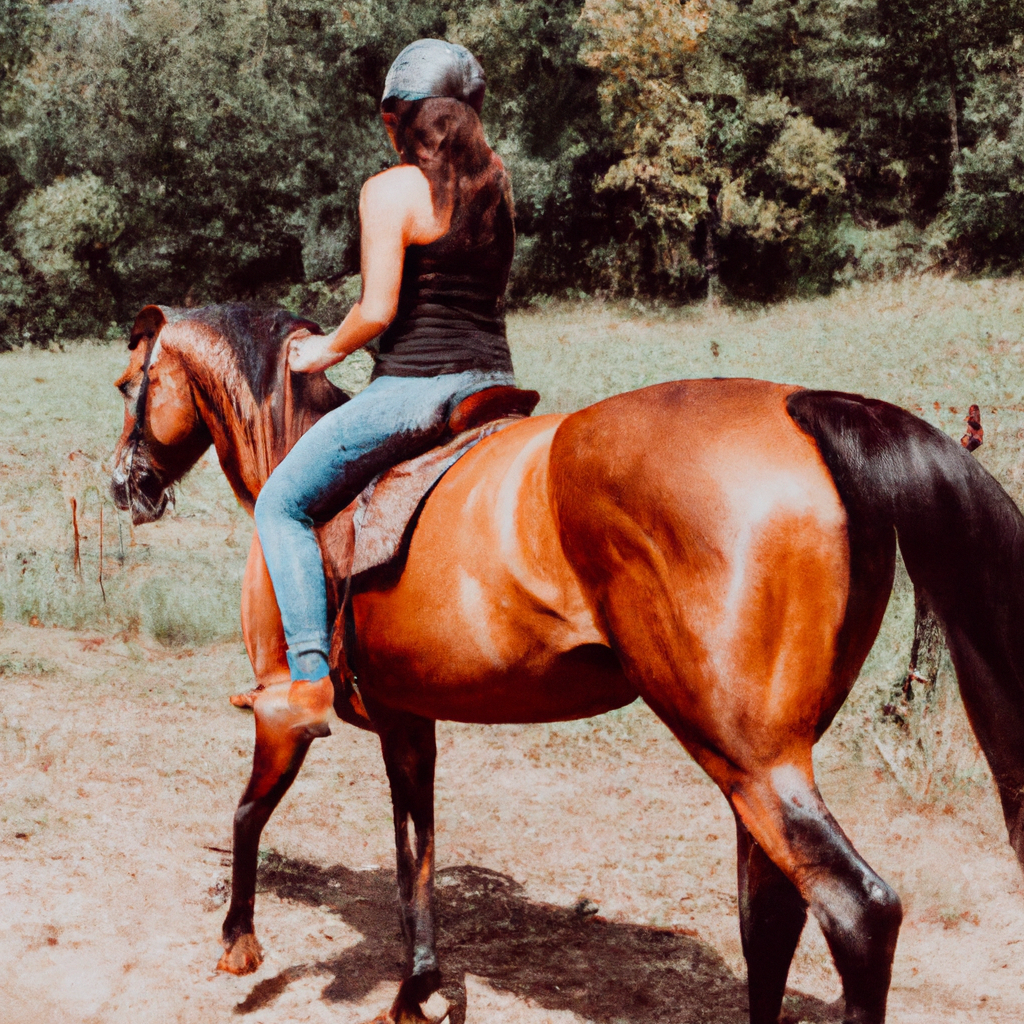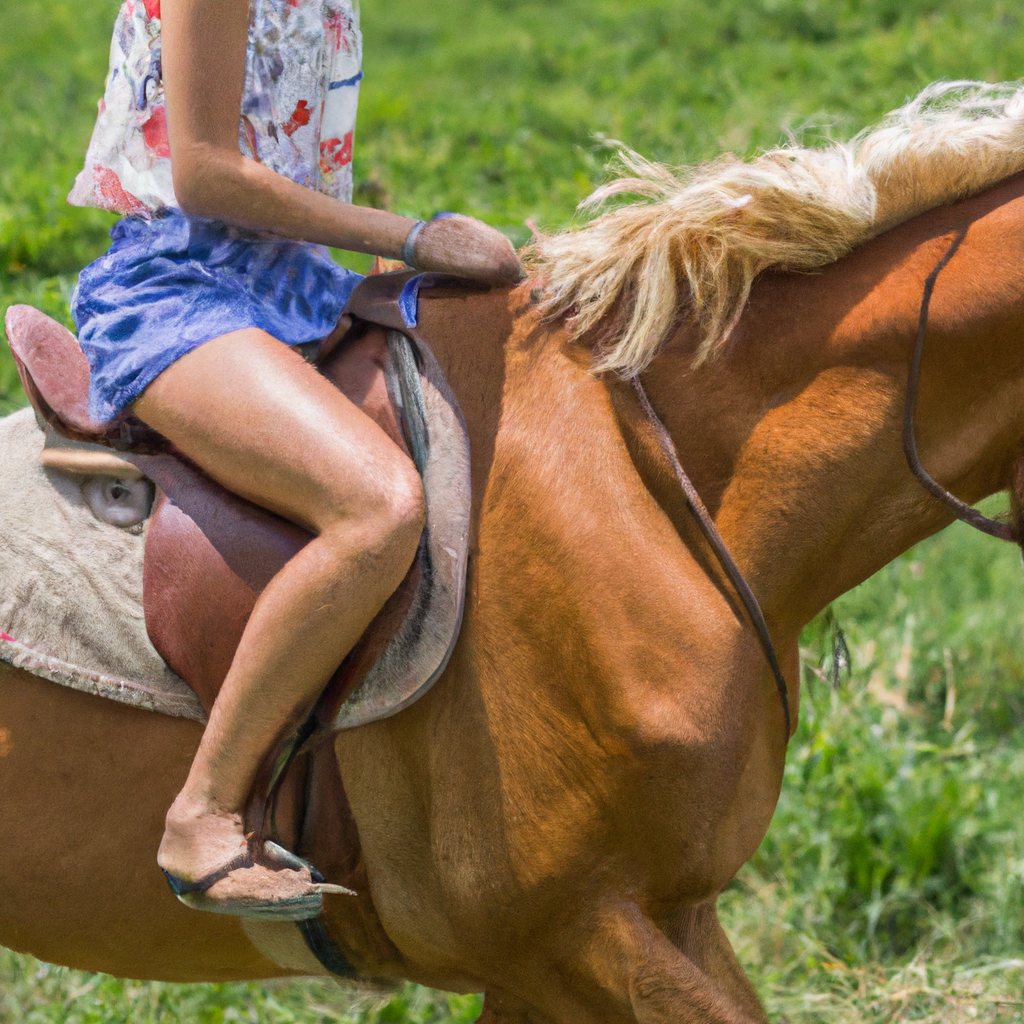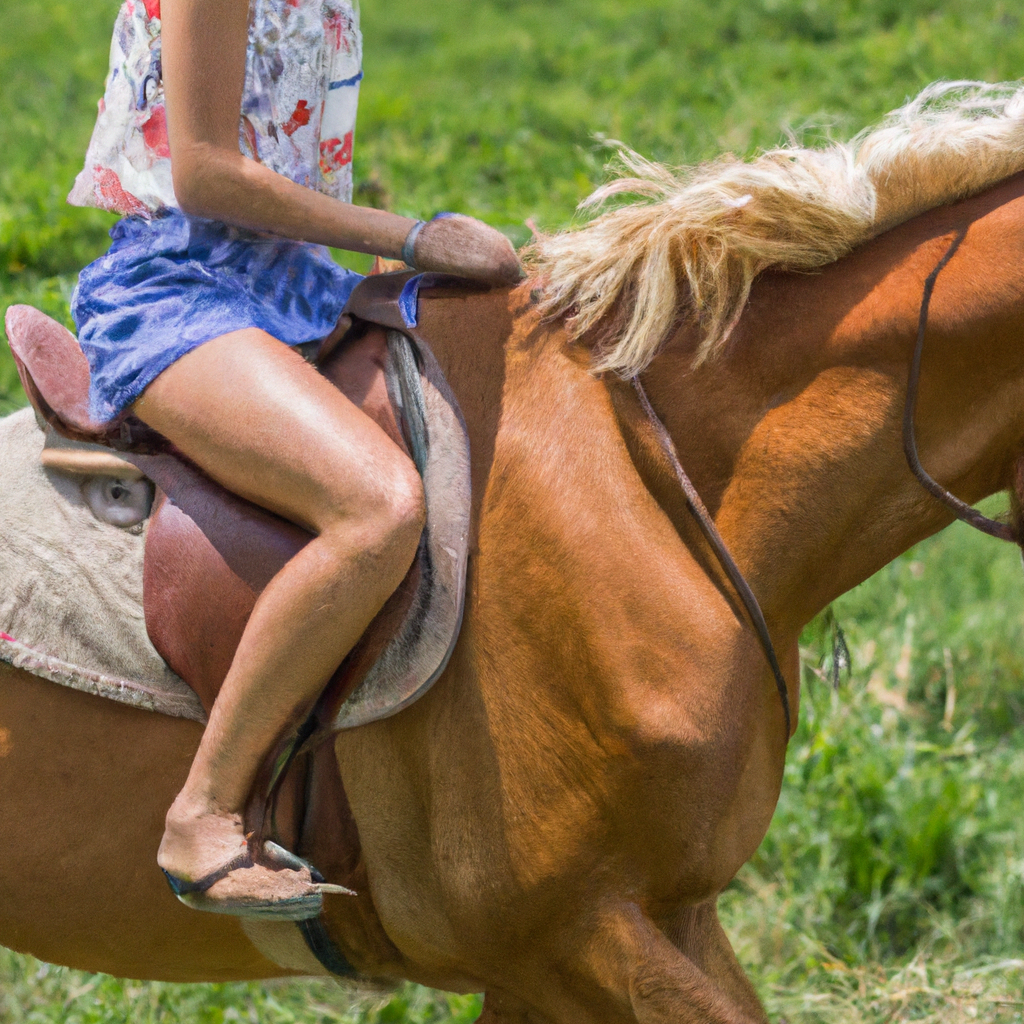Are you a horse enthusiast looking to take your riding skills to the next level? If so, then you’re in luck! On my website, “http://horsebackridingdude.com/”, I provide a variety of workshops dedicated to exploring different aspects of horseback riding. From beginner’s lessons to advanced techniques, there’s something for every rider looking to expand their knowledge and improve their skills. Whether you’re interested in dressage, jumping, or trail riding, these workshops offer valuable insights and practical tips to enhance your equestrian experiences. So saddle up and join us as we dive into the exciting world of horseback riding!

Different Types of Horseback Riding Workshops
Western Riding Workshop
A Western Riding Workshop focuses on the traditional style of riding commonly seen in the Western United States. This workshop emphasizes proper horsemanship and teaches riders how to effectively communicate with their horses using Western cues and equipment. Participants will learn skills such as neck reining, stopping, and backing up, as well as how to navigate obstacle courses and perform basic maneuvers like side-passing and turning on the haunches.
English Riding Workshop
An English Riding Workshop is centered around the refined and elegant style of riding typically seen in English disciplines such as dressage, jumping, and eventing. This workshop teaches riders the fundamentals of English riding, including the correct position and posture in the saddle, balanced use of the reins and legs, and the art of working in harmony with the horse. Participants will learn to ride and control their horses at various gaits, jump over obstacles, and perform intricate dressage movements with finesse and grace.
Trail Riding Workshop
A Trail Riding Workshop is perfect for those who enjoy exploring the great outdoors on horseback. This workshop focuses on safe and enjoyable trail riding experiences, teaching participants how to navigate different terrains, handle potential challenges, and practice good trail etiquette. Riders will learn how to assess trails for safety, properly fit and adjust trail riding equipment, and negotiate obstacles encountered on the trail. This workshop also emphasizes the importance of taking care of the horse’s well-being during long rides.
Benefits of Horseback Riding Workshops
Improved Riding Skills
Horseback riding workshops offer a multitude of benefits when it comes to improving riding skills. Through expert instruction and guided practice, riders can refine their techniques, learn new riding styles, and gain a deeper understanding of horsemanship. Workshops often provide opportunities for riders to receive personalized feedback, allowing for the correction of mistakes and the development of proper form and control. The structured environment of a workshop helps riders progress more quickly than they would on their own, leading to overall improvement in riding skills.
Increased Confidence and Self-Esteem
Participating in horseback riding workshops can have a profound impact on a person’s confidence and self-esteem. Successfully mastering new riding skills and overcoming challenges on horseback can instill a sense of accomplishment and empowerment. The connection and bond formed between rider and horse also contribute to increased confidence, as riders learn to trust and rely on their equine partners. Additionally, the supportive and encouraging environment of a workshop can boost self-esteem by providing a sense of belonging and achievement.
Physical Fitness and Exercise
Horseback riding is a physically demanding activity that engages various muscle groups and promotes overall fitness. Attending horseback riding workshops provides riders with regular exercise opportunities, which can help improve strength, endurance, and balance. Maintaining proper posture and balance while riding also helps develop core stability and flexibility. Additionally, horse care activities such as grooming and tacking up provide additional opportunities for physical activity, making horseback riding workshops a well-rounded fitness experience.
Choosing the Right Horseback Riding Workshop
Assessing Skill Level
One of the first steps in choosing the right horseback riding workshop is assessing your current skill level. Different workshops cater to riders with varying levels of experience, from beginners to advanced riders. It’s important to be honest with yourself about your abilities and choose a workshop that aligns with your skill level. This ensures that you can fully engage in the activities and challenges offered in the workshop without feeling overwhelmed or unchallenged.
Considering Goals and Objectives
Consider your personal goals and objectives when selecting a horseback riding workshop. Are you looking to improve your riding skills in a specific discipline, or do you simply want to explore different styles of riding? Are you interested in competing in horse shows or events, or do you prefer leisurely trail rides? Understanding your goals will help you choose a workshop that aligns with your aspirations and offers the training and resources necessary to achieve them.
Selecting a Reputable Provider
When searching for a horseback riding workshop, it’s crucial to select a reputable provider. Look for providers with a solid reputation, positive reviews, and experienced instructors. Research their credentials and qualifications, ensuring that they are well-versed in the specific discipline or style of riding you are interested in. Additionally, consider the safety protocols and horse welfare practices followed by the provider. A reputable workshop will prioritize the well-being of both the participants and the horses involved.

Preparing for a Horseback Riding Workshop
Obtaining Proper Riding Gear
Before attending a horseback riding workshop, it’s important to obtain the proper riding gear. This includes a well-fitted riding helmet, comfortable riding boots with a slight heel, and appropriate attire such as breeches or riding jodhpurs. In some workshops, participants may also be required to bring their own saddles and bridles. It’s advisable to consult with the workshop provider or instructor to ensure you have the necessary gear for a safe and enjoyable experience.
Establishing Physical Fitness
Horseback riding requires a certain level of physical fitness and stamina. To prepare for a workshop, it’s beneficial to engage in activities that improve your cardiovascular endurance, strength, and flexibility. Incorporate exercises such as jogging, yoga, core strengthening, and leg workouts into your routine. Building a strong foundation of physical fitness will enhance your riding performance and enable you to fully participate in the workshop activities without fatigue or discomfort.
Understanding Safety Protocols
Familiarize yourself with the safety protocols and guidelines that will be followed during the horseback riding workshop. These may include rules regarding helmet usage, mounting and dismounting procedures, and safe handling of horses. Understanding and adhering to these protocols is crucial for your safety and the well-being of the horses. It’s also wise to familiarize yourself with basic horse behavior and emergency procedures in case unexpected situations arise during the workshop.
What to Expect During a Horseback Riding Workshop
Instruction and Guidance
During a horseback riding workshop, participants can expect to receive expert instruction and guidance from experienced riding instructors. These instructors will provide demonstrations, explanations, and hands-on assistance to ensure that participants understand and are able to execute various riding techniques. They will provide constructive feedback and offer tips for improvement, helping participants refine their skills and build a solid foundation of horsemanship.
Practicing Riding Techniques
Workshops provide ample opportunities for participants to practice and refine riding techniques. Participants will engage in a variety of exercises and drills that target specific skills and challenge their abilities. These may include riding patterns, obstacle courses, jumping exercises, or even simulated trail rides. Through repetitive practice and focused effort, participants can develop muscle memory and improve their overall riding proficiency.
Horse Care and Maintenance
A horseback riding workshop is not just about riding; it also encompasses learning about horse care and maintenance. Participants will have the opportunity to learn about grooming techniques, tacking up and saddling, basic horse anatomy, and feeding practices. Understanding how to properly care for and maintain a horse is vital for building a harmonious relationship with these magnificent animals. Workshop participants will gain a holistic understanding of horsemanship, encompassing both riding skills and responsible horse care.
Tips for Getting the Most Out of a Horseback Riding Workshop
Setting Realistic Expectations
When attending a horseback riding workshop, it’s important to set realistic expectations. Understand that learning to ride proficiently takes time and practice, and progress may not happen overnight. Instead of focusing solely on perfection or comparing yourself to others, embrace the learning process and celebrate small achievements along the way. By setting realistic expectations, you can enjoy the journey of improvement and make the most out of your workshop experience.
Asking Questions and Seeking Feedback
Take advantage of the opportunity to ask questions and seek feedback during the workshop. Instructors are there to help and provide guidance, so don’t hesitate to clarify any doubts or seek further explanations. Actively engage with the instructors and ask for their observations and suggestions on how to improve your riding. Be open to constructive criticism and use it as a tool for growth. The more you seek feedback and actively participate, the more you will gain from the workshop.
Building a Connection with Your Horse
Building a connection with your assigned horse is key to a successful workshop experience. Spend time getting to know your horse, grooming them, and establishing a bond of trust. Horses are highly intuitive animals and respond well to riders who treat them with kindness and respect. By building a positive relationship with your horse, you will enhance your riding experience and develop a deeper understanding of the horse-human connection.
Common Challenges Faced in Horseback Riding Workshops
Overcoming Fear and Anxiety
Horseback riding can be intimidating for beginners or those who have had negative experiences in the past. Overcoming fear and anxiety is a common challenge faced in horseback riding workshops. It’s important to communicate openly with the instructors about your fears and concerns. They can provide reassurance, implement confidence-building exercises, and gradually expose you to new experiences at a pace that feels comfortable. Over time, with proper guidance and practice, most riders are able to overcome their fears and develop a sense of confidence in the saddle.
Dealing with Physical Discomfort
Horseback riding engages muscles that may not be regularly used, leading to physical discomfort, especially for beginners. Sore muscles, stiffness, and even blisters may occur during a workshop. Proper warm-up and cool-down exercises, stretching, and maintaining proper riding posture can help alleviate physical discomfort. It’s also important to listen to your body and take breaks when needed. With time, your body will adapt to the demands of horseback riding, and the physical discomfort will decrease.
Handling Unexpected Situations
Horses are animals with minds of their own, and unexpected situations can arise during a horseback riding workshop. Whether it’s a spooked horse, inclement weather, or a minor mishap, it’s important to remain calm and follow the guidance of the instructors. They are trained to handle such situations and will provide instructions on how to react appropriately. It’s crucial to trust in your own abilities and in the training you have received during the workshop. By staying calm and focused, you can navigate unexpected situations with confidence.
Horseback Riding Workshop Etiquette and Safety
Respecting Horses and Instructors
Respect for the horses and instructors is of utmost importance during a horseback riding workshop. Treat the horses with kindness, patience, and care. Listen attentively to the instructions provided by the instructors and follow their guidance. Never take the horses for granted, and handle them gently and respectfully. Recognize that the instructors have the best interest of both the participants and the horses in mind, and trust their expertise and decisions.
Following Proper Riding Etiquette
Proper riding etiquette ensures the safety and enjoyment of all participants in a horseback riding workshop. Be aware of your surroundings and maintain a safe distance from other horses and riders. Follow any rules or guidelines provided by the workshop organizer or instructor regarding spacing, passing, and pace. Practice good sportsmanship and be respectful of other riders’ space and priorities. By adhering to proper riding etiquette, you contribute to a positive and safe workshop environment.
Adhering to Safety Guidelines
Safety should always be a top priority during a horseback riding workshop. Follow all safety guidelines and protocols set by the workshop provider. This includes wearing appropriate safety gear, such as a properly fitted riding helmet, and adhering to mounting and dismounting procedures. Be aware of any potential hazards in the riding arena or trail, and alert the instructors or staff if you notice any safety concerns. By adhering to safety guidelines, you can minimize the risk of accidents and ensure a safe riding experience for everyone involved.
Notable Horseback Riding Workshop Providers
Top Horseback Riding Schools and Centers
Many reputable horseback riding schools and centers offer high-quality workshops catered to a range of skill levels and disciplines. Some notable names in the industry include:
These providers often have experienced instructors and a diverse range of workshops to suit different interests and objectives.
Renowned Riding Instructors
Renowned riding instructors are often sought after for their expertise and ability to deliver impactful workshops. Some notable riding instructors include:
- Jane Smith – Internationally recognized dressage trainer
- John Roberts – Renowned show jumping coach
- Sarah Johnson – Experienced Western riding instructor
- David Garcia – Expert in trail riding and wilderness horsemanship
Seeking workshops led by renowned instructors ensures a high level of instruction and the opportunity to learn from experienced professionals in the field.
Horseback Riding Retreats and Camps
Horseback riding retreats and camps provide a unique experience, combining education with leisure and relaxation in picturesque locations. These workshops often include accommodation, meals, and additional activities such as trail riding, horse grooming, and evening bonfires. Some notable horseback riding retreats and camps include:
Participating in a horseback riding retreat or camp can provide a well-rounded experience, combining education, adventure, and the opportunity to connect with fellow horse enthusiasts.
Exploring Advanced Horseback Riding Workshops
Jumping and Showmanship Workshops
For riders interested in advancing their jumping and showmanship skills, specialized workshops are available. These workshops focus on developing techniques for jumping various obstacles with precision and style, as well as refining showmanship presentation in competitions. Advanced riders can benefit from these workshops by honing their skills and preparing for higher-level horse shows and events.
Dressage and Classical Riding Workshops
Dressage and classical riding workshops delve into the art of precision and harmony between horse and rider. Participants learn the intricate movements and subtleties of dressage, focusing on achieving suppleness, collection, and lightness. Classical riding workshops emphasize the development of the rider’s seat, balance, and effective use of aids. These workshops are ideal for riders looking to improve their connection and communication with their horses.
Endurance and Competitive Riding Workshops
Endurance and competitive riding workshops cater to riders interested in long-distance riding and endurance events. These workshops address topics such as conditioning the horse for endurance rides, pacing strategies, and effective trail navigation. Competitive riding workshops focus on preparing riders for competitive events, such as barrel racing, pole bending, and timed trail courses. These workshops equip riders with the skills necessary to excel in the demanding world of competitive riding.
By exploring advanced horseback riding workshops, riders can continue to challenge themselves, expand their knowledge, and refine their skills in specific disciplines. These workshops offer the opportunity to learn from experts in the field and connect with others who share a passion for the chosen discipline.
In conclusion, horseback riding workshops offer a wide range of benefits, from improved riding skills to increased confidence and self-esteem. Selecting the right workshop involves assessing your skill level, considering your goals and objectives, and choosing a reputable provider. Proper preparation, including obtaining the necessary riding gear, establishing physical fitness, and understanding safety protocols, is crucial for a successful workshop experience. During the workshop, expect instruction and guidance, ample practice opportunities, and a focus on horse care and maintenance. To get the most out of a workshop, set realistic expectations, ask questions, and seek feedback, while also building a connection with your assigned horse. Common challenges faced in workshops include overcoming fear and anxiety, dealing with physical discomfort, and handling unexpected situations. Adhering to proper etiquette and safety guidelines ensures a positive and safe workshop environment. Notable providers for horseback riding workshops include top schools and centers, renowned riding instructors, and horseback riding retreats and camps. For those looking to explore advanced workshops, options include jumping and showmanship workshops, dressage and classical riding workshops, and endurance and competitive riding workshops. By participating in horseback riding workshops, riders can continue to learn, grow, and enjoy the remarkable experience of riding horses.
